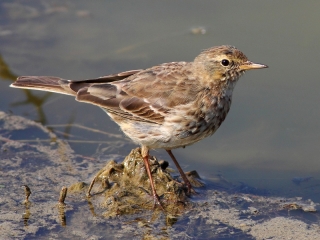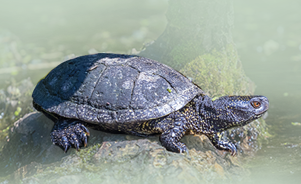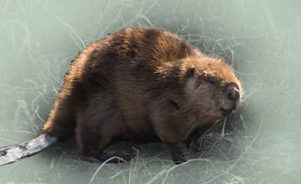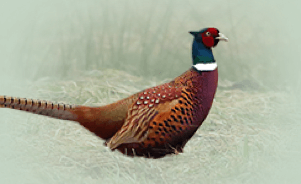Water pipit Anthus spinoletta
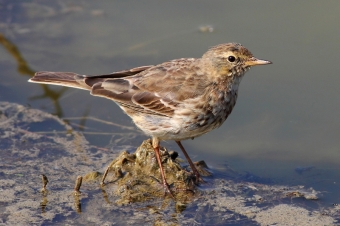
Features
The water pipit is one of the four representatives of the family that has been seen nesting in Slovenia. It is only a little larger than the house sparrow, but because of the narrow long beak and its long legs and tail, it appears larger.
| Species | Bird |
| Living space | Lake, Meadow, Rivers, Swamp |
| Size | 16 cm |
| Weight | 21 g |
Description
In the summer, it is recognisable by its grey head, nape and cheeks, its white stripe above the eyes and a white throat; it also has a black stripe across its eyes and a completely blackish beak, pale pink chest and a white belly. It is distinguished from the other pipits by a uniformly greyish-brown coloured back. Its wings are black and have brown longitudinal stripes. During flight, two narrow white stripes on the wings and the white sides of the tail become visible. The white sides of the tail are separated from the light brown mid-tail by two black belts. In winter, the colours of the water pipit's feathers fade. The pink chest becomes dirty white, while the hips get decorated with longitudinal black stripes that are not there in summer. Even its beak changes colour in winter – its base and lower part become dirty yellow. The water pipit is a rare inhabitant of Slovenian mountain pastures and meadows above treeline. It nests in May and June on grassy slopes in high mountains. The water pipits are active in the day. As they walk, they often pick up insects, their larvae and other invertebrates from the ground and from low plants, and every now and then they briefly rise into the air to catch flying insects. The water pipits are migrants which move from their nesting areas to the lowlands before the upcoming winter. They winter in freshwater wetlands, along rivers and lakes, as well as along the coast, for example, in salt-pans. Thus, we can observe them in Slovenia throughout the year, but not in the same places.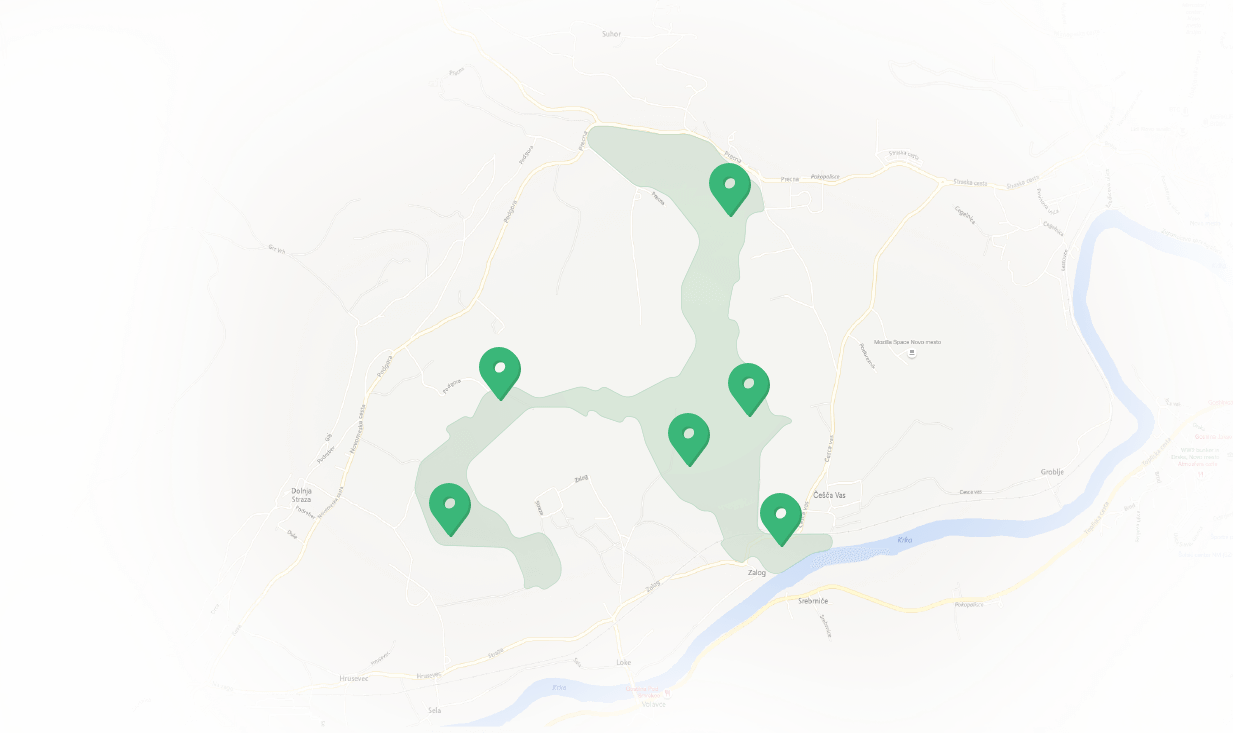
Features Temenica (3)
SPECIAL ogr.

